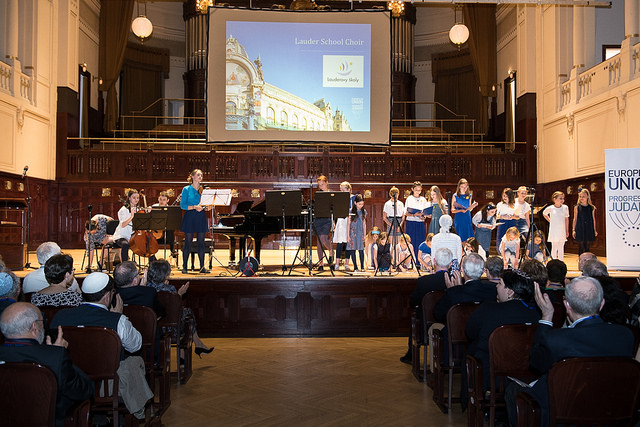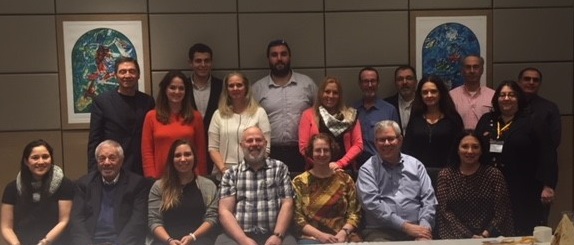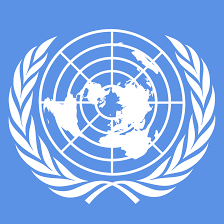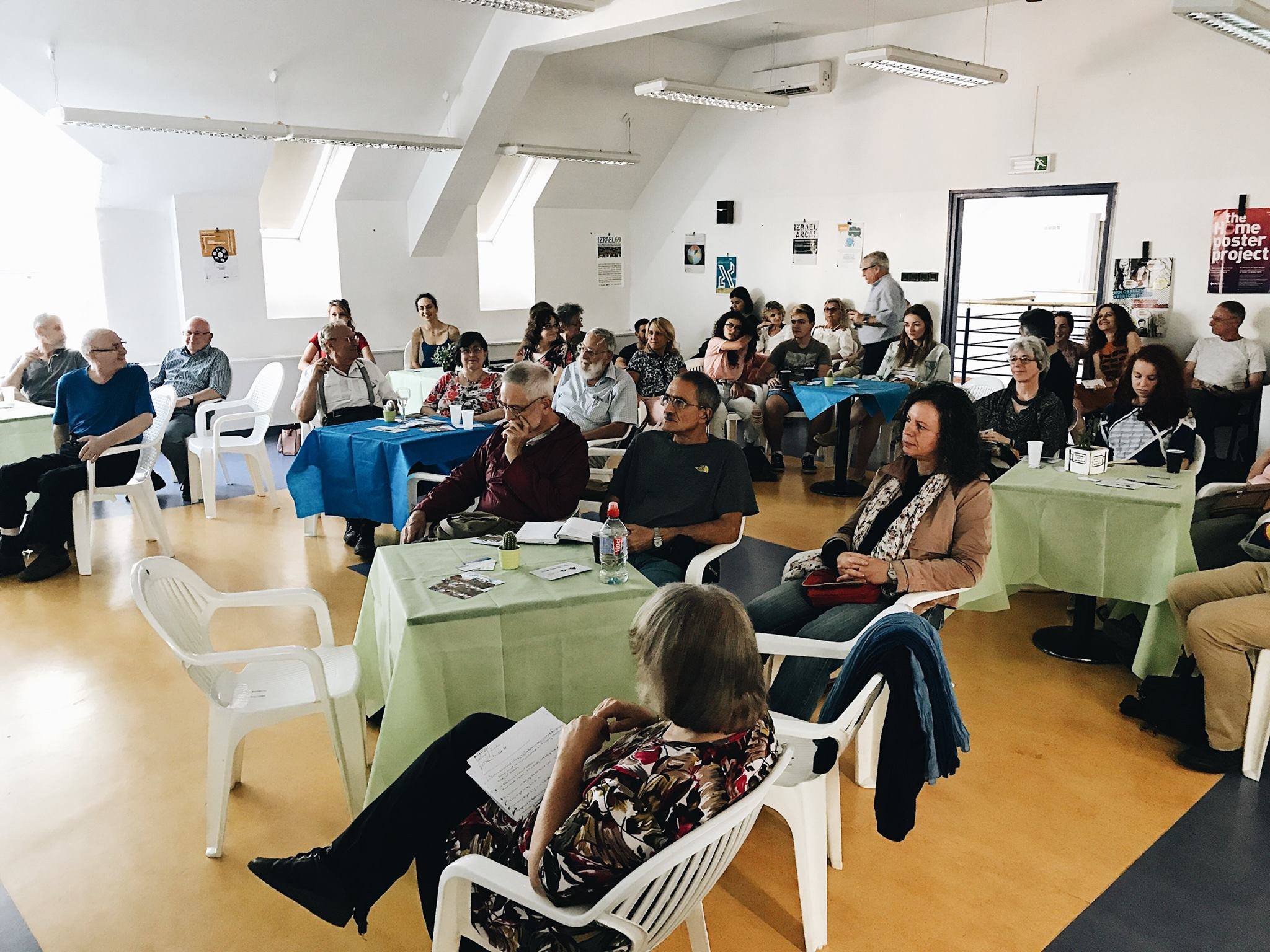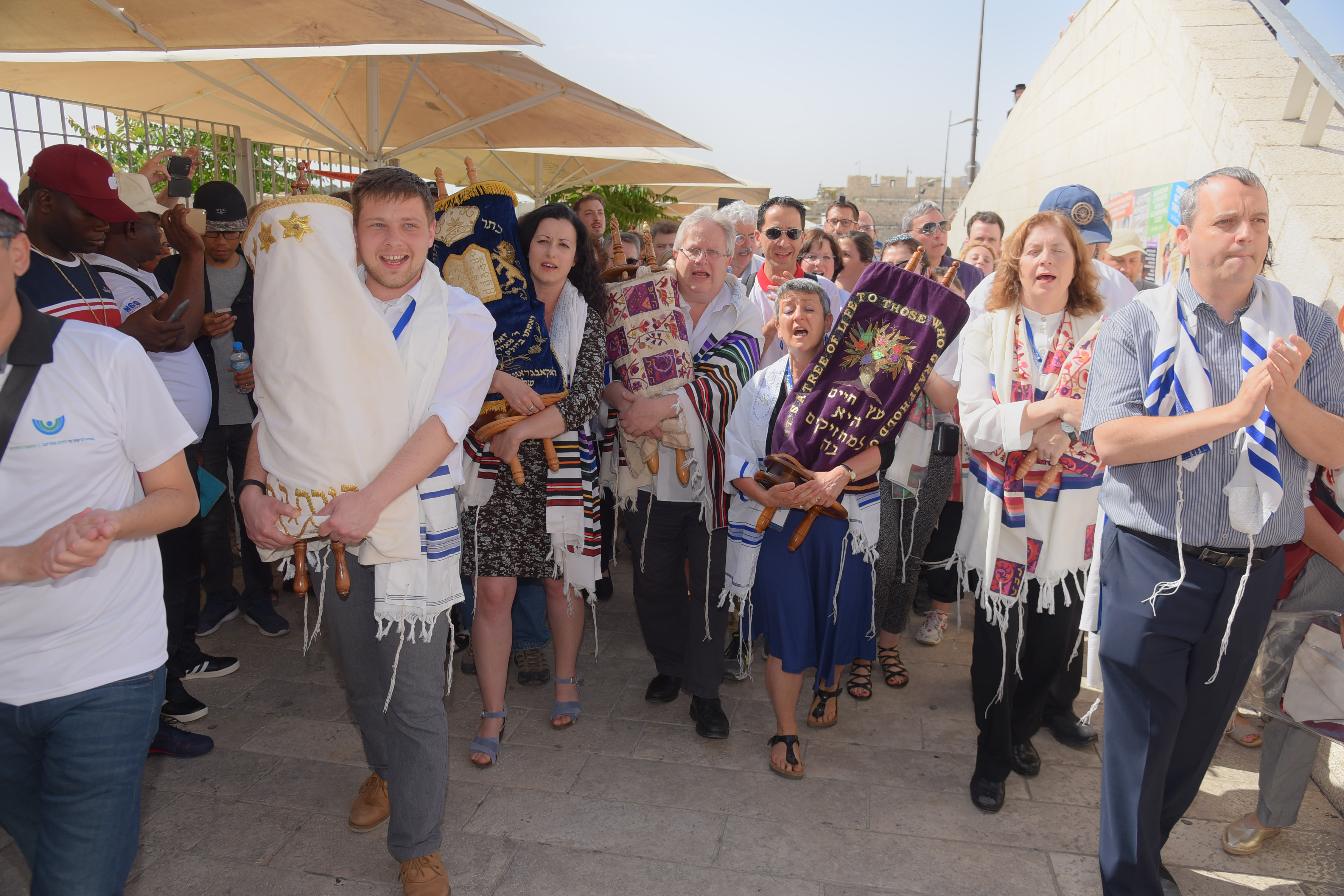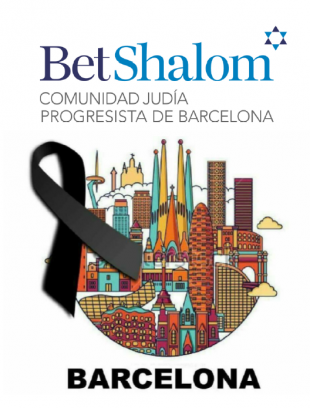More than 350 delegates from 28 countries assembled in the beautiful city of Prague to celebrate the Biennial Conference of the European Union for Progressive Judaism (EUPJ). Beginning on Thursday 26th April, an opening ceremony was held in the Smetana Hall within the Municipal House and included welcoming messages from the President of the Jewish […]
On March 18, more than 200 members of the Jewish communities as well as representatives of Christian congregations, non-governmental organizations, diplomats, schoolchildren, students, foreign visitors and residents of Grodno gathered at “March of Remembrence” in Grodno to honor the memory of Grodno ghetto demolition that happened 75 years ago. The event began with prayer led […]
Twenty representatives of six Asian Progressive communities met in Hong Kong in late January for the 2018 Asian Progressive Jewish Summit, and were joined by World Union leaders Carole Sterling, Chair, and Rabbi Daniel H. Freelander, President. Delegates from Shanghai, Singapore, Myanmar, Bali, Tokyo and Hong Kong were joined by Rabbi Fred Morgan, Regional Rabbi […]
(in alphabetical order) Suzanne Anderson | Great Britain I grew up in North London and now live in Sussex. I got married in 2016 and live with my husband on the South Coast of England by the seaside. I am a Qualified Social Worker and my career has specialised in mental health and criminal justice. My role current […]
2017 was a significant for Netzer Olami. As a movement that’s been actively engaging youth in Reform Judaism and Zionism for more than thirty years, our snifim are reporting growth and vibrancy in responding to the changes taking place across the Jewish world. Read our annual review here.
The role of the WUPJ representative at the UN is to share the international take on Judaism. Due to progressive Judaism’s ever changing involvement in relation to social justice, the representative is held responsible to report the efforts made by the WUPJ that relate to the social justice efforts in the respective UN committees. The WUPJ serves as the only Jewish voice on some committees the representative sits on and on others, the only progressive Jewish voice. It is considered one of the main contributors to religious freedom around the world.
A special event by Arzenu Hungary, the local Zionist organisation of the Reform movement, and the Israeli Cultural Institute was many months in the making. Erika and Tamas from Arzenu invited two outstanding presenters, educators from the unique Arava region of Southern Israel to offer a glimpse of the amazing intellectual capacity, wonderful green projects, research and entrepreneurship thriving in this wild and beautiful, remote desert landscape.
On September 19, while visiting New York to speak at the United Nations, Israeli Prime Minister, Benjamin Netanyahu, accused the Reform and Conservative movements in Israel of using their partnership in the Western Wall agreement as a clandestine way to gain recognition. The World Union, along with its regional affiliates, responded to his charges with the following statement.
The World Union’s Beit Shmuel Conference Center in Jerusalem was recently scheduled to host a conference by Israel’s Ministry of Health. Within 24 hours of the conference’s scheduled opening, MK Yaakov Litzman, Minister of Health and member of the Ultra-Orthodox United Torah Judaism party, cancelled the conference because of its association with Reform Judaism. The […]
In their own words, Comunitat Jueva Bet Shalom emphatically condemn the attacks which took place in the cities of Barcelona and Cambrils, offers prayers for the victims and their families and expresses solidarity with the citizens and the institutions that represent them. Read their response from the heart of the city.
